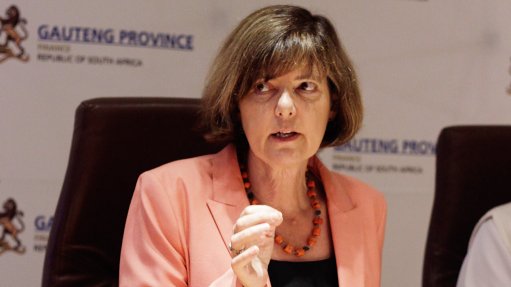
The Gauteng provincial government’s (GPG’s) move to implement an open tender process for the procurement of goods and services above R50-million has been a success and the provincial government is preparing to extend the process to all tenders by the 2018/19 financial year.
The GPG in the 2014/15 financial year kicked off its first two pilot open tenders for the newly constructed R88.5-million Cedar road, which was officially opened in June within budget and on time, and the appointment of a provincial banker.
The public procurement process had since been extended across all provincial departments, with 72 open tenders valued at R10.4-billion – 50% of provincial government’s goods and services budget – awarded under the public spotlight, said Gauteng Finance MEC Barbara Creecy at the inaugural Open Tender Seminar, in Midrand, on Tuesday.
“It’s not a theory, it’s not a plan. It is already in place,” she said of the programme that would now expand even further.
The Gauteng Provincial Treasury is accelerating the implementation of the open tender process to 60% of the procurement budget this year, targeting 80% of procurement next year and 100% by the 2018/19 financial year.
The process would provide openness and accountability within the Gauteng provincial departments, agencies and municipalities, which spent R47-billion on goods and services over the past two years, Gauteng Premier David Makhura added.
“In the 2015/16 financial year, we spent a total of R25-billion, of which R19-billion (77%) was on black[-owned] companies, 20% on women[-owned] companies and 9.3% on youth[-owned] companies,” he said.
Further, during the first half of the 2016/17 financial year, 93%, or R9.4-billion of the R10.2-billion procurement spend to date was allocated to black-owned firms, of which women-owned companies accounted for 22.7% and youth-owned companies 10.5%.
This proves that open decisions on tenders are not skewed in favour of those already empowered and does not reinforce marginalisation, as was feared upon the first implementation of the programme.
“I have also heard stories from frustrated honest businesspeople who say how difficult it is to get a tender purely on the basis of capacity to deliver. There is a widespread belief that in order to get a tender, you have to bribe your way into the corridors of power,” he said.
“You do not need to pay a bribe. You just need to deliver,” Makhura assured.